PartnersFinancial was founded in 1987 by an elite group of farsighted life insurance advisors, including two principals of Texas Financial Partners, Todd Healy and myself. The goal was to unite a national client-focused community of select, independent life insurance members dedicated to exceptionally high client relationship standards and premiere client service. As Chairman of the Board through PartnersFinancial’s formative years 1994-2001, we attempted to achieve that goal.
PartnersFinancial links core carriers and independent financial advisors through its national network, creating a connection that benefits everyone involved—members, their clients and advisors, and insurance companies. Its unique culture encourages idea-sharing, collaboration, innovation, leverage and objectivity.
- PartnersFinancial participates in each core carrier’s product development process, as well as advisory councils composed exclusively of PartnersFinancial members.
- PartnersFinancial enjoys the commitment of dedicated underwriting and service teams from its core carriers for negotiating the best pricing and resources for clients.
- The organization provides best-of-breed tools to help members increase their staff efficiency to support deeper client relationships and more efficient delivery of solutions.
- PartnersFinancial members share the ideas and innovation of the best and brightest in the industry, sharing this intellectual capital of its members freely among members through its study groups, regional, and national meetings.
Members gain access to a wider spectrum of products, services and support, all resulting in wider choice and informed objectivity that clients deserve. They have the added advantage of infrastructure and intellectual capital to help expand their competitive position and enhance their ability to better serve clients.
Most important, this institutional advantage does not diminish the advantages of our entrepreneurial independence.
To contact Buddy:
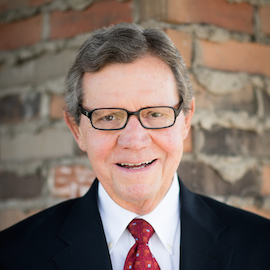
A. R. “Buddy” Dike
Texas Financial Partners, Founder
P: 817.349.2364
IdeaTransfer interviews Buddy Dike on the evolution of the insurance industry, client service in the future and moving forward with Texas Financial Partners.
Buddy Dike
Founder, Texas Financial Partners
Founder, The Dike Company
IT. Buddy, your perspective on the insurance industry covers nearly six decades of change. Describe the most important turning points for your business.
Buddy. My first clients were my contemporaries. We were eagerly developing our own businesses with all the excitement that comes start-ups. As we grew I wanted to be able to fill all their risk management and employee benefit needs, but big eastern mutual life insurance companies weren’t supportive the diversified firm I envisioned. I was forced into independence, and that was a great turning point.
It led to working with public companies and then being acquired by one of the largest international consulting firms. But I had no intention of retiring. I wanted to work with affluent families and the businesses they owned, helping them protect their wealth and preserve their businesses for future generations. And they appreciated the boutique approach and the commitment to a higher standard of personal service.
IT. Describe the industry concerns about how to sustain that client service in the future.
Buddy. Not enough concern to solve the problem until now. I was talking with a banker and longtime friend. Many of his clients have become my clients and vice versa. I told him I sometimes think about hanging it up in a few years, and he told me, No, you can’t! He knew what that could mean to our mutual clients.
My firm plays a critical role tracking our clients’ policies, so that the complex planning decisions they made remain secure. Very few agents could match our analysis resources and our experience. And while insurance companies send our clients reports, we interpret the data so they can make informed decisions. Accountants and trustees may be able to analyze the data, but the ability to identify, compare, and implement alternative strategies is outside their field. And who helps the next generation once they take over? Fortunately, we are confident we have solved that problem.
IT. I’m guessing this is the next turning point for you—founding Texas Financial Partners?
Buddy. That’s right. We call Texas Financial Partners a client continuity merger. The merger is designed to fill the gaps proactively for the continuity of our client relationships.
Our partners are all seasoned life insurance advisors in the state of Texas. We know each other well. We have the same kinds of clients. We are merging our knowledge and experience of sophisticated life insurance planning and our service capabilities to support them for the long term. Three different generations are represented in Texas Financial Partners, so the longevity of the firm will always surpass the longevity of the partners.
IT. Texas Financial Partners and client continuity merger are new concepts. How have clients and advisors reacted so far?
It’s not that new to us. We already have two emeritus partners in the firm, so the transfer of service responsibility has been tested with enthusiastic responses from clients and advisors. It comes down to a single goal that no one has effectively addressed.
The estate and business planning process can be complex and emotional, and when clients make their decisions they feel a sense of confidence about financial security and family harmony. However, the planning process doesn’t end. There will always be more decisions over time and among the generations.
All the advisors who contribute to the planning process know the value of their roles and are committed to ongoing service. But a “forever” commitment only works if all the contingencies are resolved. We believe Texas Financial Partners is a great answer to that concern.
IdeaTransfer is an independent firm with three decades of experience consulting with advisors, advisors groups, and financial institutions.
To contact Buddy:

A. R. “Buddy” Dike
Texas Financial Partners, Founder
P: 817.349.2364
IdeaTransfer interviews Gary Stallard on the relationship between client and advisor, the importance of objectivity and the reaction to Texas Financial Partners.
Gary Stallard
Founder, Texas Financial Partners
Founder, Stallard Financial Services
IT. Clients often describe relationships with trusted advisors in terms of peace of mind. What does the relationship mean from your side?
Gary. Client relationships come in all shapes and sizes. I am fortunate to have very long and very personal relationships with many of my clients. I get see the impact my work has on their business, family, and philanthropic goals. We all appreciate they are doing the right thing today and for generations to come.
I am also engaged by client advisors on behalf of their clients to analyze problems and create solutions. I might engage personally with the family or the business, but satisfaction comes from bringing a fresh perspective and alternatives to a team of brilliant advisors. We all appreciate increasing client benefits, lowering costs, and achieving a higher internal rate of return.
IT. If you could name one defining component you bring to the table for clients and advisors, what would choose?
Gary. No question the most important element I offer is objectivity. Objectivity means I won’t hesitate to challenge assumptions or conclusions and that my advice will always be sound and reliable. And by the way, objectivity means I don’t feel I need or want to sell a life insurance policy to have a successful client relationship. It is too common in this industry for agents to analyze policies and find reasons to replace them with “more efficient” alternatives.
Client may want to save money today, but they don’t realize that they may lose valuable guarantees. They see the new proposal projecting whatever they give up today will be earned again in a few years. Meanwhile the agent enjoys a commission from the sale that didn’t have to occur. Objectivity requires that you first try to achieve efficiencies by working with the current insurer on the client’s behalf. There is no monetary reward for that, only the reward that your integrity is intact.
IT. Life insurance solutions are uniquely long term, addressing events that may not occur for decades. Can peace of mind last that long?
Gary. Here’s why Texas Financial Partners is so important to clients and advisors. The planning process we go through for affluent families and the businesses they own can be very complex. At the end clients experience a sense of relief—now they have clarity, they feel confidence, they see a coordinated solution for the future.
However, after a few years pass they won’t be able to articulate how their life insurance policies apply to specific components of the plan. That’s OK because they know I’m monitoring the policies and the plan, and I make sure the plan responds to change.
But what happens if for any reason—planned or unplanned—I can’t continue to work for decades? And what happens when the next generation takes ownership of this multigenerational plan—will it adapt or fall apart? Texas Financial Partners answers that challenge with our client continuity merger. It’s provides a systematic way to seamlessly meet each partner’s commitment to clients when these transitions happen.
IT. You have introduced Texas Financial Partners’ client continuity strategy to many advisor colleagues and clients. What is the reaction?
Gary. Clients are relieved to get this issue resolved, because it has been given lip service for years. Advisors take particular interest in Texas Financial Partners, because we are all in the same boat. We can’t claim to advise our clients how to plan for uncertainties and leave our own longevity is one of the uncertainties. Our client continuity merger is simply doing for ourselves what we do for our clients.
IdeaTransfer is an independent firm with three decades of experience consulting with advisors, advisors groups, and financial institutions.
To contact Gary:
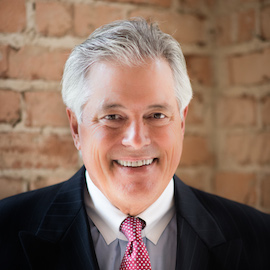
Gary W. Stallard
Texas Financial Partners, Founder
P: 214.744.3260
Part One. Why should these survey results lead us to conclude that family-owned businesses are in trouble?
- According to a 2010 research report on family business issued by the University of Vermont Business School, the average lifespan of a US family-owned business is 24 years.
- Business Week reported a year later that 40% of family-owned businesses become second-generation businesses, while 13% pass to a third generation and 3% to a fourth.
- In the Jan-2012 Harvard Business Review the journal reported 70% of family-owned businesses fail or are sold before the second generation gets a chance to take over, while 10% remain privately held companies for the third generation to lead.
First, the 24-year average business lifespan actually sounds impressive, given the acceleration of change business owners have had to deal with over the past several decades. Say the founders were age 25-35, twenty-four years is about when they could seriously consider their children taking over the business, and according to these stats 40% achieve that goal.
Are we supposed to conclude the other 60% missed the family business boat? Maybe they sold their companies to outsiders for admirable multiples and started something new. Maybe they sold to the management team with a note that is funding their retirement. Maybe their kids found successful careers on their own while the founders were financially successful enough outside the business to retire comfortably.
Similarly, are the 87% that failed to make it to the third generation evidence of second generation failure? Maybe G2 developed the business so successfully they sold to the highest bidder. Maybe they went public. Finally, what can we make of this number 70%—family businesses that failed to give the second generation a chance?
Sure, many might have folded in the first few years, but from the other data we know 20% of those businesses survived beyond the average 24 years giving them plenty of time to consider family ownership transfer.
Statistics that downgrade the success of American privately owned businesses sound slick at best—self-serving if they come from consulting institutions who have a stake in solving the “problem”. Here’s an idea. Compare the founder longevity statistics to public company CEOs, whose average tenure is six years! Now that’s failure.
Part Two. Who really cares why so few so few business reach G4?
Keep your attention getting your business ready for G2. Here are some ideas.
1. Give Newton’s First Law of Motion a business twist.
Let’s say Isaac Newton concluded that, “A business at rest will remain at rest unless acted on by an unbalanced force. A business in motion continues in motion with the same speed and in the same direction unless acted upon by an unbalanced force.”
Don’t you feel surrounded by “unbalanced forces”—not just acting on you but relentlessly forcing you to adapt. New technologies, new marketing strategies, new distribution models, new regulatory pressures, consumer trends, employee trends, compensation trends, global competition trends—unbalanced forces never leave you alone.
How does this law affect founders bringing successors into the business? The founder-successor is a game-changer force and totally unbalanced. Welcome it, because without unbalanced forces, business physics says you either stay at rest (death) or forever move in the same direction at the same speed (dying). When you bring G2 into your business, you bring fresh eyes and an adaptor mindset.
Most owners choose between two training models—sink-or-swim versus when-I-say-you’re-ready. Both are bad. Do you really want a clone who repeats your mistakes? Do you really want a dependent you do all the thinking for?
You want someone who understands the why-how-what that got the business to where it is today, someone who respects the customer desires that drive the company’s mission and the people and knowledge and skills that execute that mission, and most of all someone always thinking what-if. Not an entrepreneur necessarily—but someone who can master and even break Newton’s law.
2. Founder and Successor are not job titles.
“Founder” is historical. It already happened. It can’t happen twice in the same company. It’s great to have the title because it starts the story of the company from the garage to the corner office, from a few loyal employees to a large employee family to a thriving company culture, and from a few willing customers to international markets.
But the ending of the story requires a different description. Most CEOs would be thrilled to wind down their careers working half time at full salary and perks. They want to do everything they love about the job but pass along all the monotony and grief. Sounds well-deserved, but it’s just not productive or fair. The company needs more CEO energy not less to prepare for the future.
The right role is Ambassador, building profitable relationships and networks, promoting the company brand and enhancing its reputation. That may be full time work, but it qualifies as what most CEOs like about being CEOs. It is also a role critical to the launch of next-generation ownership.
Meanwhile, “Successor” hardly describes the expectations for next-generation ownership on either side. It implies someone who will placidly continue the policies of past leaders or someone eager to put his own stamp on everything. Companies run by clones or rebels are throwing away a great opportunity. Not should company founders even wish for entrepreneurial passion from successors. The passion to value is adaptability—recognizing and responding to the challenges presented by an evolving business world. Successors should be Developers building on the strengths of the company and the shortcomings of competitors. They honor the past by creating the future.
3. Developers and Ambassadors have to meet on bridges.
Sometimes bridges are solid and easy to cross. Other sway over a chasm in the wind. It’s easy to pass each other by on the solid bridge. It’s hard to get together on the flimsy one. But you have to meet half way, one bridge at a time. Here are three.
Developers have to master the products, services, and processes that made the business successful. There are no shortcuts. The first generation spends most of a lifetime converting ideas into action and creating things people want to buy. The second generation has an urge to innovate out of old school ways. Both sides have to appreciate the other’s thinking and respect equally past results and future potential.
Ambassadors have to share control long before turning over control. Leadership is teachable, but hard to impart without experiencing it directly, so give Developers projects that call for the real thing. Developers must develop soft eyes keeping keen awareness on the surrounding context of every issue while examining the facts right in front of them. The need to understand the shortcomings of fear and loyalty as motivators and dig deeper to achieve persuasion. They need to take small but significant risks, with resolve but without having to explain along the way.
Developers and Ambassadors alike are required to surrender their baggage before stepping on the bridge. Of course there will be misunderstandings and conflicts throughout the transition. Only, make sure they aren’t simply kneejerk reactions from family issues that need closure. And not misguided assumptions and preconceptions of two generations getting in the way of one-to-one communication.
To contact W. P.:
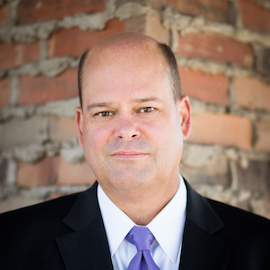
W. P. Richardson
Texas Financial Partners, Founder
P: 817.259.9030
IdeaTransfer interviews Gray Mills on founding and growing his firm, learning the life insurance business and his future with Texas Financial Partners.
Gray Mills
Founder, Texas Financial Partners
Founder, Mills Financial Group
IT. Tell us how you founded and grew your firm. Over the years, what do you think your clients have appreciated most from your work?
Gray. I was just out of college—no family business and no capital to feed my entrepreneurial ambition. However, I was interested in learning the life insurance business, thinking it would give me independence and build a business from nothing more than my own motivation and education. I found it very rewarding work, which in turn challenged me to steadily grow my business by finding ambitious and committed people who wanted to grow together.
I shouldn’t presume to know what it has meant to my clients, but many of my relationships go back decades. I hear the words trust and confidence a lot, and I am happy to have contributed to those feelings. I guess trust has to be a big factor—trust that the recommendations I make are in their best interests and the financial products I provide them pass the tests of objectivity and suitability.
IT. You talk of learning the life insurance business. How demanding was it to achieve your expertise in estate and business planning?
Gray. If you go back to the early days of my firm, the knowledge I needed was how to survive in a very competitive environment. But at the same time the life insurance industry is populated by knowledgeable and dedicated people who share with their colleagues. I was fortunate to know and learn from them, continually adding new knowledge as the industry evolved. I also earned my CLU designation from the American College.
Also there are numerous associations dedicated to spreading new ideas that I have been part of year after year. PartnersFinancial is a membership company I am part of—a subsidiary of National Financial Partners. My access to experts, analysts, institutions, and products is hard to match.
IT. Your planning process also integrates client advisors in numerous professions. How does that collaboration work?
Gray. Collaboration is absolutely necessary for our clients planning decisions. There are legal, tax, accounting, trust, and financial components to every sophisticated estate plan. All the representatives from these disciplines have to respect each other’s expertise and trust each other’s judgment. It comes down to credibility. If another professional advisor brings me into a client matter, I regard him as a partner. He knows I will be straight up with his client. The planning process is a gentleman’s calling in the best sense of the word.
IT. Where does Texas Financial Partners fit into your history and your future?
Gray. Life insurance industry is a service-based industry, and life insurance policies are designed to be serviced over several decades and across generations. There is a financial impact on the next generation of course but also a stewardship impact. Sadly, the traditional level of personal service offered by life insurance institutions has given way to technology and efficiencies, and I’m concerned about that direction.
Estate and business planning involve difficult personal and family decisions. Clients want to come away with that comfort and confidence I spoke of. Plus they want it to extend surviving spouses, children, grandchildren, and philanthropic interests. Texas Financial Partners is a merger on behalf of client continuity to preserve that higher standard of client care.
The relationships that come out of that process can be very personal, and I want to know a personal relationship will outlive me. That’s where Texas Financial Partners is focused. As partners we will share that permanent commitment to provide the services and advice our clients require.
IdeaTransfer is an independent firm with three decades of experience consulting with advisors, advisors groups, and financial institutions.
To contact Gray:
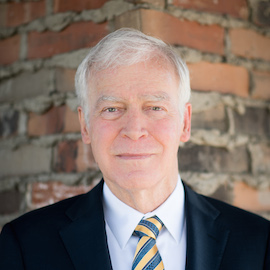
H. Gray Mills
Texas Financial Partners, Founder
P: 817.332.3656
IdeaTransfer interviews W. P. Richardson on family run businesses, generational conflict and the expectations of Texas Financial Partners.
W.P. Richardson
Founder, Texas Financial Partners
Whitley Penn Financial Services
IT. Most of your clients are privately owned businesses. What led you to focus in that area?
WP. I came from a third generation family business. My grandfather started the company and eventually shared ownership with my mother and father. I assumed after graduating from TCU, I would take my place in the business. However, I quickly learned that problems come in two forms in a family business—business problems and family problems. We had both.
Our business problem was new competition with a better and well-capitalized model. But ahead of that were unsolvable family conflicts between G1 owning 51% and G2 at 49%. I opted out after one year for the life insurance industry, where I gained the planning knowledge and experience to actually solve these kinds of problems.
IT. Grim statistics of family business survival may be driven by external competition and internal conflicts, but is there more to plan for?
WP. Ironically, success creates its own set of problems. Many thriving businesses won’t have liquidity to survive the tax impact of ownership transfer. Lack of liquidity plagues Texas family businesses where wealth may be tied up in land, leaving the business as the only asset with a market for provide estate tax liquidity.
Even founders who sell outside the family seldom realize the financial and tax impact of the transaction. Owners have to plan well in advance for any transition, and heirs have to stay with the plan after they inherit to realize the full value. Unfortunately, founders get caught up working in the business and delay working on the business as a family asset.
An example of the power of working on the business came up recently when circumstances allowed the founder to take advantage of a lowered valuation on the company. Losing value my not be good news in a business. However, reduced stock value meant the owner could gift more stock to trusts established for the next generation. By removing these assets from the estate and purchasing life insurance to meet the tax liability, the business can be preserved and the full value pass to the next generations.
IT. Go back to generational conflict—how can G2 earn a voice in G1’s planning process?
WP. Parents like equality for their children. In mature family businesses the next generation is already settled in careers and lifestyles, and equality doesn’t apply. For example, children who are active in the business look forward to reinvesting profits for growth, while the inactive owners want to see some income from the asset. Sustaining family harmony across generations can be hard enough while parents are alive, so it’s discouraging to watch plans unravel after they are gone.
Strategies to equalize the value of inheritance without conflict are integral to the plan, so I favor family meetings during the planning process and continuing when assets pass across generations. The next generation may not know what the transfer of the business and family assets can mean to them, because wealthy parents often avoid financial disclosure for security and psychological reasons. But equally important, a multigenerational plan is effective only if the next generation adheres to it, and the meetings help align everyone’s intentions and expectations.
IT. Isn’t it Texas Financial Partners intention and expectation to assure that multigenerational harmony?
WP. Exactly, because the planning process and the financial strategies to fund tax liabilities and asset equalization create a long term commitment to provide clients advice and service. We refer to Texas Financial Partners as a client continuity merger dedicated to preserving the quality of that advice and service across generations.
IdeaTransfer is an independent firm with three decades of experience consulting with advisors, advisors groups, and financial institutions.
To contact W. P.:

W. P. Richardson
Texas Financial Partners, Founder
P: 817.259.9030
The Distinguished Achievement Award was created by Preston Hotchkis, who was a member of Pacific Life’s Board of Directors from 1945 to 1970. The annual award recognizes the life insurance producer who best personifies Pacific Life’s standard of excellence through high sales production, dedication to the community, and overall achievement. Get to know the winner of Pacific Life’s 2015 Preston Hotchkis Distinguished Achievement Award.
A.R. “Buddy” Dike believes in teamwork, service, and good old-fashioned sweat equity. The roots of his beliefs were evident in high school, where his talents on the football field led to multiple scholarship offers.
After his father’s career in the meatpacking industry moved the family from Chicago, Illinois to San Antonio, Texas, Dike accepted an offer from Texas Christian University (TCU) in Fort Worth, Texas, where he played both fullback and linebacker. The athlete formed many indelible memories at TCU, including meeting his wife Sara and helping the school’s Horned Frogs defeat the Syracuse University Orangemen in the 1957 Cotton Bowl Classic. Dike remembers the game fondly both for his team’s 28-27 victory and for shattering his facemask tackling future Pro Football Hall of Famer Jim Brown.
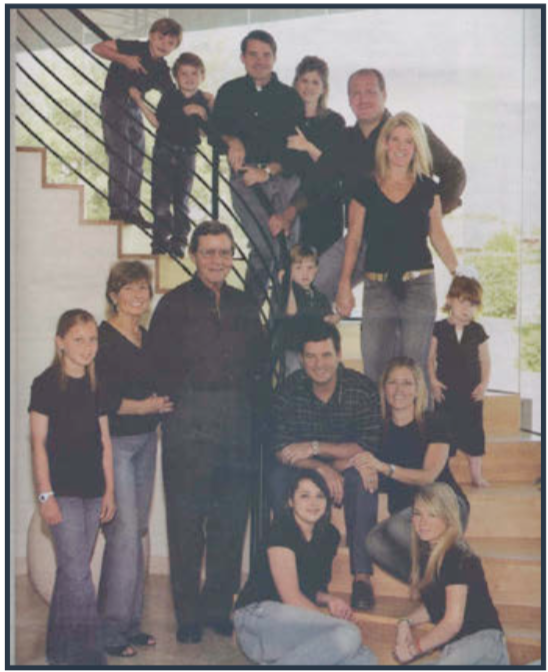
Top to bottom: Marshall & Ben Dike, grandsons; Michael & Stephanie Dike, son & daughter-in-law; Jason & Susanne Dial, son-in-law & daughter; Ethan Dial & Sara Dial, grandchildren; David & Beth Dike, son & daughter-in-law; Ellen Dike & Taylor Dike, granddaughters; Buddy & Sara Dike; Audrey Dike, granddaughter.
LAUNCHING A CAREER
After graduating from TCU, Dike settled in Fort Worth where the tenacity he displayed in tackling challenges on the field served him well as he launched his career.
“Football taught me about perseverance,” Dike says. “You get knocked down, and you have to get right back up. You have to learn how to stay with it.”
This lesson served him well as he launched his career in life insurance with Connecticut Mutual Life Insurance Company, which had an office in Fort Worth. “My first year was tough. It was hard to get people to talk about life insurance,” Dike recalls. “They wanted to talk about football. But, I tried to make a game out of it, challenging myself to make more calls and more sales.”
Fortunately, Dike was able to use the topic of football to break the ice with potential customers and apply the sales concepts he learned from Connecticut Mutual to start building relationships and closing more deals.
Dike wanted to help the owners of small-to-medium-sized businesses by offering the protection of life insurance as well as property and casualty insurance. His entrepreneurial spirit led him to form The Dike Company in 1966. His commitment to client needs and expertise in the field helped the new business prosper.
“You treat people with respect and over time word gets out that you aren’t just selling policies to make money,” Dike explains. “You are selling policies to help people meet their goals.”
By 1985, Dike recognized the potential benefits of partnering with fellow insurance professionals and merged with other firms to form The Insurance Alliance. Their combined expertise and access to major insurance carriers helped the company succeed. Insurance Alliance was sold to Willis North America in 1991. Dike is also one of the founding members of National Financial Partners, which was taken public by Apollo, a private equity firm in 2003.
WORKING WITH PACIFIC LIFE
Dike’s relationship with Pacific Life began 27 years ago. “I started doing business with Pacific Life around 1988, and Pacific Life has been an exceptional company over that time,” says Dike. “As part of National Financial Partners, we have access to the top carriers in the country, but three things make Pacific Life stand out: its people, equitable treatment of existing policyowners, and innovative products.”
“The tax system is complex,” he says, “and as long as I can keep providing strategies to help my clients pass on what they’ve worked a lifetime to achieve, I’ll keep coming to the office.”
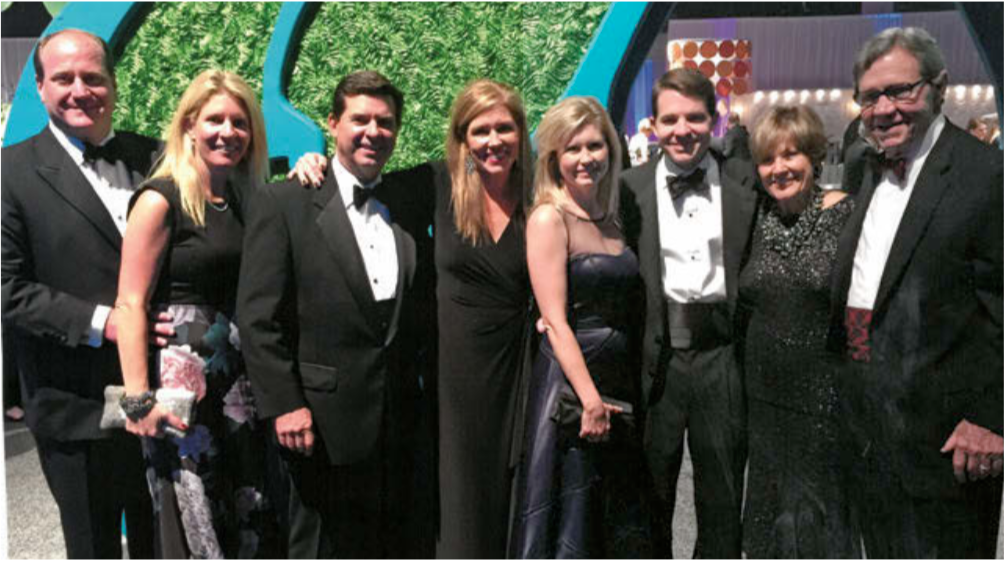
Left to right: Jason & Susanne Dial, daughter & son-in-law; David & Beth Dike, son & daughter-in-law; Stephanie & Michael Dike, daughter-in-law & son; Sara & Buddy Dike.
COMMITMENT TO SERVICE
Buddy and Sara have 3 children and nine grandchildren who call Fort Worth home. Over the years, Dike has devoted himself to numerous causes, serving on the boards of the Davey O’Brien Foundation, Cotton Bowl Athletic Association, and TCU, and contributing to numerous worthy charitable causes.
When he is not working or volunteering, Dike enjoys spending time with his family, playing golf, and watching his beloved Horned Frogs take the field.
In addition to his charitable work, providing stewardship for the life insurance industry has been a point of emphasis for Dike. He served as President of the Fort Worth Association of Life Underwriters, Society of Financial Service Professionals, and Fort Worth Business and Estate Council. He was also a charter member and board member of the Top of the Table.
As the recipient of the 2015 Preston Hotchkis Distinguished Achievement Award, Dike receives a $5,000 gift to be donated to the charities of his choice. The award winner wants the gift split between two beloved organizations he treasures: Cook Children’s Health Foundation, which is dedicated to improving the health of children in the Dallas-Fort Worth region, and the WARM Place, which helps children and their families who are suffering from grief.
“Buddy’s commitment to his clients’ success and to the community of Fort Worth embodies the ideals that the Preston Hotchkis Distinguished Achievement Award represents,” says Rick Schindler, the executive vice president for the Life Insurance Division of Pacific Life. “We are honored to welcome him to the fraternity of honorees.”
